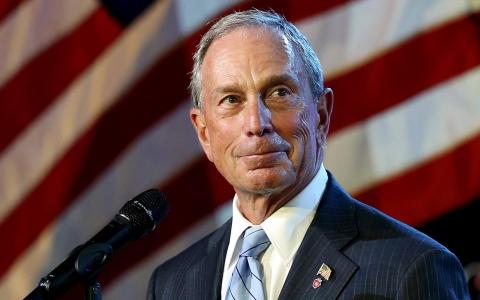
(Reuters) U.S. presidential candidate Michael Bloomberg has spent more on campaign ads in the last few weeks than his main Democratic rivals have all year. Yet his level of support has barely risen, according to a Reuters/Ipsos poll.
The poll, conducted Dec. 18-19, shows about 5% of Democrat-leaning voters support the billionaire former mayor of New York, up from 3% in mid-November just before he announced his candidacy.
Three candidates still lead the pack of Democrats seeking to challenge President Donald Trump in the 2020 election: former Vice President Joe Biden with 18%, Senator Bernie Sanders with 15% and Senator Elizabeth Warren with 10%.
Bloomberg, who announced his campaign on November 24, sits in fourth place among 15 Democratic candidates, one point above Mayor Pete Buttigieg of South Bend, Indiana.
Ranked by Forbes as the eighth-richest American, Bloomberg has flooded U.S. airwaves and social media feeds with messages that he stands the best chance to beat Trump.
He has spent over $76 million on television ads since Nov. 16, while Biden, Warren, Sanders and Buttigieg have spent a combined $13.2 million all year, according to an analysis by the Wesleyan Media Project citing Kantar/CMAG political ad data.
Bloomberg has even outspent Tom Steyer, the Democratic contest’s other billionaire candidate who has put over $72 million into TV ads this year but garnered just 2% support in the latest Reuters/Ipsos poll.
In a race where no Democratic candidate has become a clear frontrunner, Bloomberg’s position in polls shows he is a serious candidate who faces an uphill battle.
“He’s now got a foot in the game,” said Larry Sabato, director of the Center for Politics at the University of Virginia. “This shows you the advantage you can have with enormous wealth, but also that you really can’t buy a nomination like this.”
Bloomberg, a former Republican who only switched to the Democratic Party in 2018, has positioned himself as a moderate.
Bloomberg’s clearest path to the nomination could come if Biden stumbles, said Bill Schneider, a political scientist at George Mason University.
He has proposed creating a public health insurance option, banning assault weapons and slashing U.S. carbon emissions - ideas that resemble those of fellow-centrists Biden and Buttigieg.
WEALTH IN FOCUS
After entering the race late, Bloomberg has missed the first six Democratic debates, including one in Los Angeles on Thursday.
His wealth could be key to his risky strategy of skipping the first four Democratic primary contests - including the Feb. 3 caucus in Iowa - in hopes of making up ground on March 3 when 14 states hold primaries.
But his use of his estimated $53 billion fortune has also prompted criticism from other candidates, including progressives Warren and Sanders, that Bloomberg is trying to buy the U.S. election.
Bloomberg, 77, has also faced criticism from progressives over policies in place while he was mayor of New York, which allowed police to stop and search people on the street and which were decried as targeting black men. African-American voters are a critical Democratic voting bloc.
Bloomberg trails the three Democratic leaders in hypothetical match-ups against Trump, the Reuters/Ipsos poll also found.
Bloomberg led Trump among registered voters by two percentage points - 39% to 37%. But Warren led the president by three percentage points, Sanders led him by four and Biden by six.
The Reuters/Ipsos poll was conducted online, in English, throughout the United States. It gathered responses from 1,117 adults, including 709 who identified as Democrats or independents. The poll has a credibility interval, a measure of precision, of 4 percentage points.



